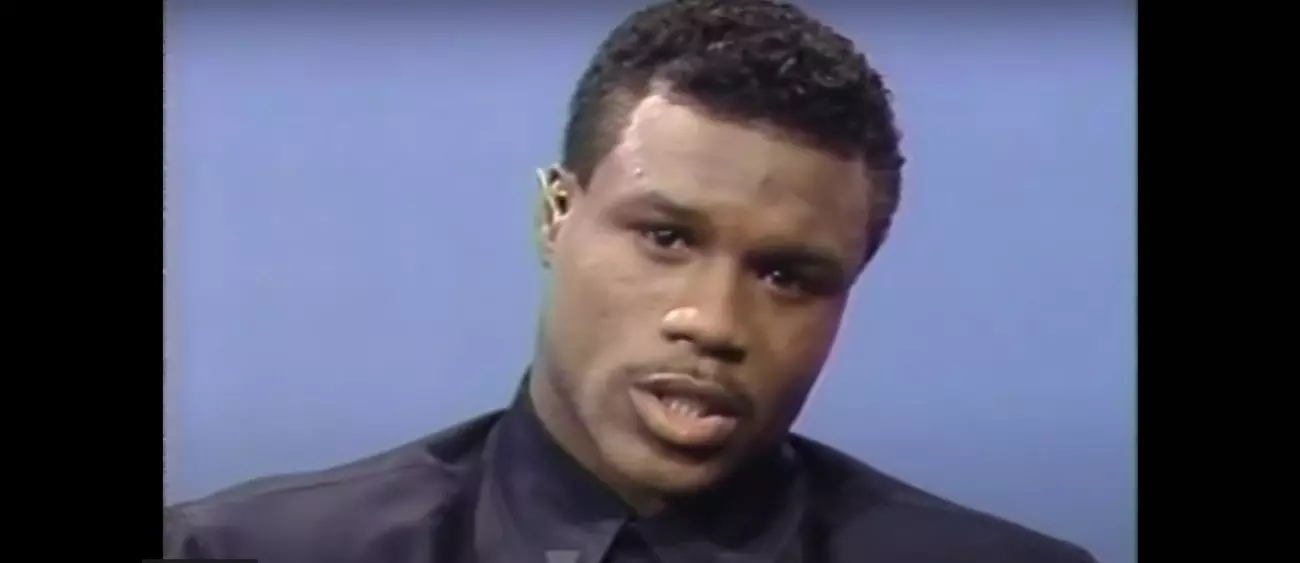On March 17, 1990, boxing history would be irreversibly altered during a matchup between Meldrick Taylor and Julio Cesar Chavez. In the closing moments of the final round, Taylor, who had displayed an impressive performance, found himself in a dramatic twist of fate that left fans and experts alike in disbelief. With only two seconds remaining on the clock, the fight was sensationally stopped by referee Richard Steele, leading to a Technical Knockout (TKO) that not only determined the outcome of the bout but also defined the trajectory of Taylor’s career and legacy. While many might remember the heart-wrenching moment as “Two seconds from greatness,” it is essential to delve deeper into what contributed to Taylor’s ultimate downfall that night and how it shaped his future.
Born in Philadelphia, a city steeped in boxing history, Meldrick Taylor was destined for prominence in the ring. Displaying an extraordinary combination of agility, speed, and technical skill, Taylor amassed an impressive amateur record of 99 wins and only four losses, culminating in a gold medal at the 1984 Olympics. Easily labeled a prodigy, he earned the moniker “T.N.T” — suggesting explosive power and potential. Yet, despite the accolades, it was Taylor’s indomitable spirit and desire to fight that defined him. Inspired by Philadelphia legends such as Joe Frazier, he adopted a warrior mentality, opting to engage in face-to-face battles rather than embracing his technical prowess through smart boxing.
This inclination towards brawling over strategy would be evident as Taylor ascended the ranks of professional boxing, ultimately claiming the IBF light-welterweight title. His willingness to stand toe-to-toe with opponents made for thrilling spectacles but also exacted a toll that would inevitably manifest itself in later years.
The showdown with Julio Cesar Chavez represents the apex and nadir of Taylor’s career. Viewed as perilous by fans and analysts alike, this fight showcased Taylor’s remarkable talent and resilience. He appeared in control, outpacing a desperate Chavez while delivering an artistic display of boxing that seemed to assert his dominance. However, the thrilling exchanges came at a price. Taylor, notorious for his preference for crowd engagement, found himself in a position where he absorbed significant damage, incurring a fractured orbital bone and sustaining severe swelling. Although ahead on the scorecards, Taylor’s tactical decision to remain in the pocket exposed him to the relentless assault of a dangerous and desperate Chavez.
As the final seconds ticked away and the fight turned chaotic, a momentary lapse in judgment proved catastrophic. Distracted by his trainer Lou Duva on the ring apron, Taylor lost sight of Steele’s officiating. This visual misstep led to an abrupt end to what by all accounts could have been a historic victory, followed by an avalanche of disbelief and outrage from fans witnessing the aftermath.
Following the fateful night against Chavez, Taylor’s journey became tragically illustrative of the dangers inherent in boxing. Despite securing victories over other notable fighters, such as Aaron Davis and Glenwood Brown, Taylor’s subsequent bouts revealed signs of decline. Chronicling losses against formidable opponents like Terry Norris repeatedly resulted in increased scrutiny surrounding his physical and cognitive well-being. Witnessing a once-promising career erode into misfortune, fans began to lament the loss of the fighter they once celebrated.
By age 35, the toll of his dedication came crashing down, forcing Taylor into retirement with a record of 38 wins, 8 losses, and a lone draw. His decline raised poignant questions about the sacrifices athletes make and the price of glory.
As Meldrick Taylor reaches a new milestone in life, turning 58 years old, one can only reflect on the profound legacy he left in the ring. Rarely seen in public nowadays, it remains to be seen how he reconciles with the duality of his career—witness to breathtaking moments yet burdened by a singular heartbreaking loss against Chavez. Nevertheless, Taylor’s legacy as a fighter who dared to dream big and fought with unparalleled heart serves as a reminder of the remarkable achievements borne out of celebrity yet shadowed by tragedy.
In retrospect, had Taylor chosen to rely more heavily on his technical skill rather than succumb to the warrior instinct ingrained in him by his upbringing, the narrative of his boxing life may have shifted dramatically. Would he be celebrated not just for talent but also for preserving his health? Ultimately, Meldrick Taylor’s story encapsulates the essence of boxing: brilliance and brutality coexist within a realm where glory often bears an unbearable cost. Looking back, one hopes that Taylor can view his career as not just one marred by heartbreak but as a testament to fighting spirit, raw talent, and a life dedicated to the sport.

